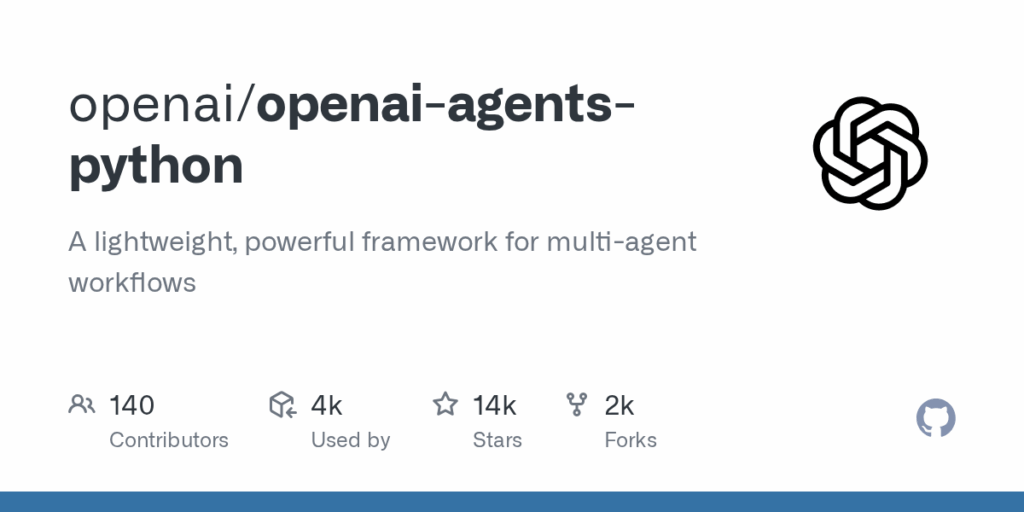Features
The README documents core concepts and concrete features: configurable Agents with instructions and tools, explicit Handoffs for transferring control between agents, and Guardrails for input and output validation. Sessions provide automatic conversation memory with a provided SQLiteSession and a Session protocol for custom implementations. Tracing is automatic and extensible with external processors for observability. The Runner implements an agent loop that handles model calls, tool execution, handoffs, and final output detection including structured outputs. There are examples showing functions as tools via a function_tool decorator, language-routing handoffs, Temporal integration for long-running workflows, and an optional voice install group. Development helpers include a make-based workflow for syncing dependencies, linting, testing, and type checking.
Use Cases
The SDK reduces boilerplate and accelerates building complex, multi-agent LLM applications by providing standard patterns and primitives for agent behavior, memory, and orchestration. Automatic session handling simplifies conversational state across runs while the Runner loop centralizes model, tool, and handoff processing so developers can focus on high-level logic. Tracing and integrations to external observability tools make it easier to debug, monitor, and optimize agent workflows. The handoff primitives and Temporal integration enable durable, human-in-the-loop and long-running processes. Provider-agnostic LLM support and extensible session and tracing hooks let teams adapt the SDK to different models, storage backends, and monitoring stacks without reimplementing core orchestration logic.








